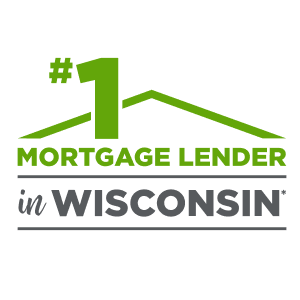Acceptance
When you find a home you want to buy, you’ll make the seller an offer to purchase. Acceptance is when the seller agrees to the terms of your offer, at which point it becomes a legal contract.
Amortization
Home loans are structured (amortized) so that over time each payment reduces the amount still owed until there’s a zero balance and the loan is paid in full. At the beginning of the amortization schedule, your payment will include more interest than principal. By the end, it will include mostly principal and less interest.
Appraised Value
This is an evaluation of a home’s value at a given point in time performed by a professional appraiser during the mortgage origination process. At a minimum, its purpose is to assure your lender that the property you are purchasing is worth more than the amount they are lending.
Asking Price
Also called the “listing price,” this is how much money the seller would like to get for their home. Working with a real estate agent who understands the market will help you determine whether to offer the seller their asking price—or more, or less. When a home has been on the market a while, the seller may be motivated to accept less. In a hot market, you might be advised to offer more than what they’re asking.
Assessed Value
This is the dollar value assigned to your home by your municipality for the purposes of figuring out how much property tax you owe. Assessed value takes comparable home sales in your area, improvements you’ve made to your home and, in some cases, a quick walk-through inspection into consideration. Yay, taxes. Just part of being a homeowner.
Assumption
It’s possible, on certain loan types, for a homebuyer to take over (assume) the home seller’s existing mortgage without having to get a new loan. The mortgage lender would require proof of the buyer’s ability to make the payments, and the buyer would have to compensate the seller for their equity. When the interest rate on an existing mortgage is lower than the current interest rate available, assuming a mortgage could be a good option.
Automated Underwriting
During the preapproval process, loan application data, including the borrower's income, expenses and credit history, is analyzed based on an algorithm to arrive at a loan decision in just a matter of minutes. Additional underwriting occurs prior to distribution of funds at closing.
Closing
This is when the actual legal passing of ownership from seller to buyer happens. You’ll both sign a lot of documents, the seller will get paid for their property and the buyer (hey, that’s you!) will get the keys to their new home.
Closing Costs
These are expenses over and above the price of the home you’re buying, related to obtaining your loan and transferring title to a new owner. Costs could include loan origination fees, points, appraisal, title search, title insurance, surveys, taxes, deed-recording fees, credit report fees and homeowners insurance.
Closing Disclosure
This is a standard form (formerly called a Settlement Statement) providing final details about the mortgage loan you have selected. It includes loan amount, terms, interest rate, monthly payments and how much you will pay in closing costs. You’ll receive a preliminary closing disclosure (CD) prior to closing and will have time to review it, so when the big day comes there shouldn’t be any surprises. A final CD will be issued on or before the day of closing with final figures that have been confirmed with our closing department and the title company.
Conditional Offer
When making an offer to purchase a home, it’s wise to build in certain conditions that must be satisfied before you and the seller are obligated to go through with the deal. The most common conditions are buyer’s approved financing (because you’ll need that loan to buy the house and, of course, the seller wants to get paid for their house) and a home inspection. A professional home inspection protects you from having to go through with the purchase of a home “as is” if it’s discovered to have serious problems you hadn’t noticed when you fell in love with it. FYI, conditions are sometimes called “contingencies.”
Downpayment Assistance
First-time homebuyers who meet certain income requirements may qualify for assistance with down payment and closing costs. Your mortgage loan officer can help you explore options, such as WHEDA (Wisconsin Housing and Economic Development Authority), USDA Guaranteed Rural Development and VA loan programs.
Equity
You own your home once your mortgage is paid down to zero. Until then, the portion of your home’s value that you own is called the equity. Your down payment counts as equity, and you continue to build equity both by paying down your mortgage principal and through increases in the fair market value of your home.
Escrow
Some homebuyers’ monthly mortgage payments include amounts to cover property taxes and homeowners insurance (the “T” and the “I” in PITI). Depending on how your loan is structured, these funds may be held in an escrow account by your lender until taxes and insurance are due, so that they’re available when needed. Spreading those costs out over the course of a year is a smart, budget-friendly approach.
Gift Money
This is money given to you by relatives (or anyone else) to help with your down payment. It’s best not to accept a down payment gift until you and your mortgage loan officer have discussed the rules, or it could get … complicated.
Homeowners Insurance
You will need to protect your investment against losses from fire, weather damage, theft and sudden or accidental damage from, say, a plumbing failure, with sufficient coverage for the house itself plus all your personal property. Your policy will also provide liability coverage in case someone is injured in your home or on your property. Your insurance premiums make up part of your monthly PITI payment.
LTV (Loan-to-Value) Ratio
Take the amount of your mortgage and divide it by the appraised value of your home. That’s your LTV ratio. If it’s 80% or under, that means you have at least 20% equity in your home and can avoid paying private mortgage insurance (PMI).
PITI
This is shorthand for principal, interest, taxes and insurance. Taken together, these four costs make up your monthly payment. Principal plus interest go toward repaying the loan. Taxes are the property taxes you pay as a homeowner. Insurance includes both homeowners and Private Mortgage Insurance (PMI), if required.
Preapproval
Nothing matters more in the entire home buying process than getting a preapproval! A preapproval tells you how much the lender is willing to let you borrow based on your income, expenses and credit score using an automated underwriting process. But more importantly, you’ll look at those numbers too and get a feel for how much you are comfortable paying each month. Nothing says you have to borrow up to the limit. Leave yourself a cushion, because you’ll probably want to buy a couch—and who knows what else.
Prequalification
If you’re wondering whether you’re even in any position to buy a house and just want an estimate of how much you might be able to borrow, a “prequal” is a relatively quick and easy way to find out. If you’re seriously in the market for a home, get a preapproval. What's the big difference? A preapproval involves pulling your credit score while a prequal does not.
Principal
Quite simply, this is either the amount borrowed on a new mortgage or the amount still left on an existing one—not including interest.
Private Mortgage Insurance (PMI)
PMI is generally required when the owner has less than 20% equity in the home. Because your down payment equals equity, you can avoid paying PMI by putting 20% down. Otherwise, PMI is included in your monthly mortgage payment (also known as your PITI), then paid by your lender to a private firm to insure they get paid in case you default on your loan. You may be able to avoid paying PMI with only 10% equity. Ask your mortgage loan officer how.
Purchase Offer
Or offer to purchase. Once you find a home you’d like to buy that’s in your price range according to your preapproval, you’ll complete the offer form, likely with the help of your real estate agent. The offer form includes how much you’re offering, what conditions or contingencies apply and how soon the seller needs to respond to your offer.
Title Insurance
A title search prior to closing should reveal any existing claims on the home you’re buying—for example, unpaid taxes or an unsatisfied lien (or mortgage) on the property. Title insurance protects you and your lender from being liable for those claims once you take ownership. It’s a one-time fee that’s included in your closing costs.
Underwriting
Part of the mortgage approval process is for your lender to determine whether to accept the risk of offering you a mortgage. Underwriting happens behind the scenes and includes verifying your credit worthiness, appraisal, title search and title insurance, flood certification and surveying. You can help the underwriting process along by providing complete financial and employment information with your preapproval application and responding quickly to any additional requests for information.












